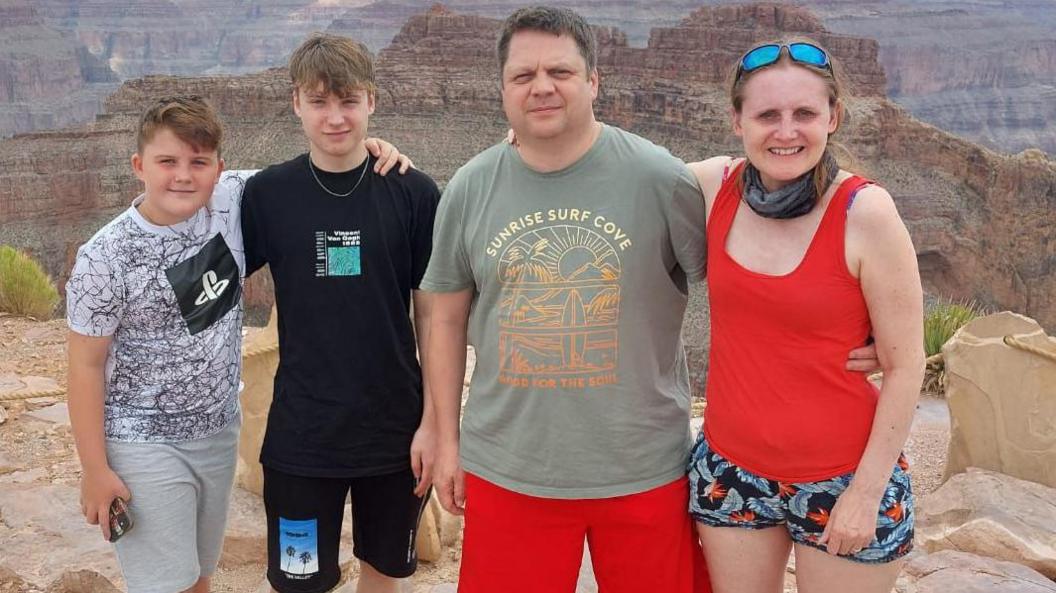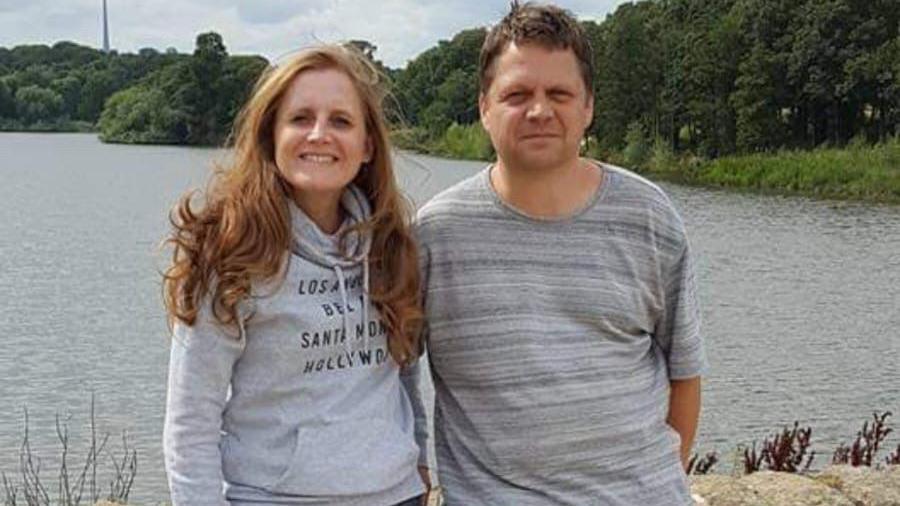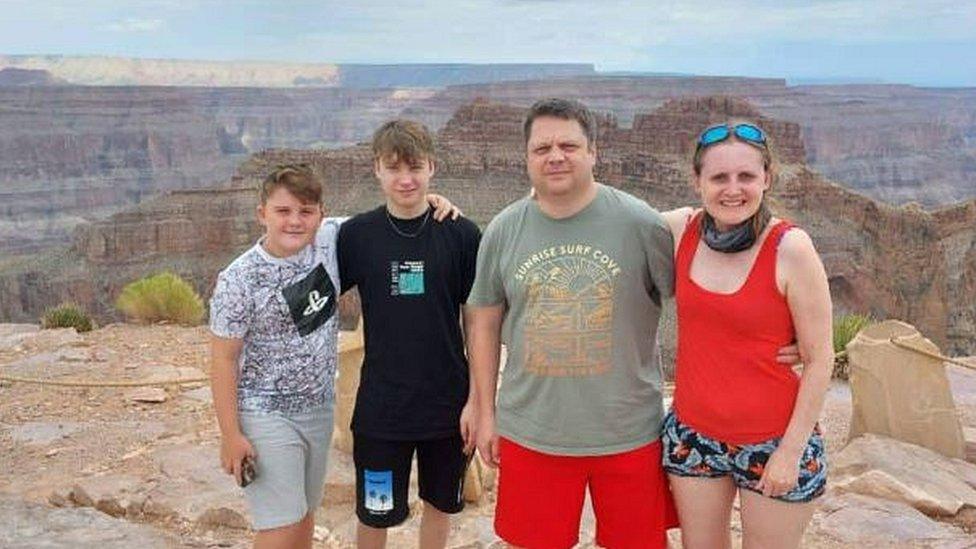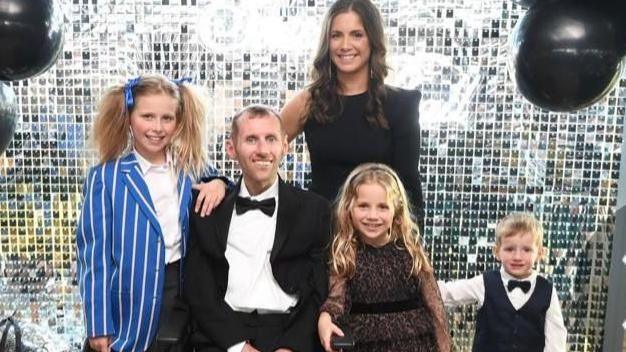'Harsh reality' of dementia and MND combination

Sarah Frith, pictured with partner Gareth Heslop and their two children, was diagnosed with dementia in 2022 and motor neurone disease in 2023
- Published
The partner of a woman diagnosed with both a rare form of dementia and motor neurone disease (MND) says he wanted to highlight the "harsh reality" of caring for someone with the combination.
Sarah Frith, from Sheffield, was diagnosed with frontotemporal dementia (FTD) aged 48 in 2022 and was told she also had MND the following year.
According to the MND Association, up to 15% of people originally diagnosed with FTD go on to develop MND.
Mr Heslop said the stress of caring for someone that suffers from both conditions has put a “huge strain on the family”.
Mr Heslop said the couple, who have been together for 23 years and have two children, both lost their jobs in 2019 and initially thought his partner's behavioural changes were due to stress.
However, when Ms Frith started a new job working from home towards the end of 2020 he saw she was struggling with tasks she would usually have managed.
Following a GP visit in 2021, Ms Frith was diagnosed with stress and anxiety and signed off work, but a follow-up scan revealed deterioration in the front of her brain.
After further scans and tests the following year, Ms Frith was formally diagnosed with FTD.

Mr Heslop says his partner had now lost about 75% of her speech
Ms Frith's talking started to change in 2023, he said, and she eventually lost about 75% of her speech.
She also developed issues with eating and started to struggle swallowing her food.
Tests in December 2023 revealed she had MND, with the further diagnosis adding “extra complexities” to her care, Mr Heslop said.
While some patients are affected in their legs and require a wheelchair, Ms Frith has issues with her arms and throat.
“She can’t grip a glass any more," said Mr Heslop.
"She has to have special food so she doesn’t choke.”
The treatment for MND and dementia patients "doesn't always fit together", Mr Heslop said.
He continued: “It's impossible - I have to make choices about her end-of-life care, she can’t make them because she has dementia and doesn’t understand it.”
MND patients sometimes go through the process of using a feeding tube, but Mr Heslop said it was not an option for them.
“It’s not appropriate with Sarah’s dementia, she doesn’t realise what it’s there for and will probably try and pull it out and reject it,” he said.
Mental health toll
Mr Heslop said his partner's condition has had a huge impact on his own physical and mental health.
“It's something I want to talk about and acknowledge, it's a harsh reality," he said.
He said he had put on weight due to his caring responsibilities meaning it was difficult to leave the house.
Doctors have told him Ms Frith's live expectancy is thought to be between six and nine months, with the family currently caring for her at home.
"At some stage if it all becomes too tiring to manage, if her treatment is too complicated or if her interactions with my sons become too upsetting for them, I'll need to think about what's best," he said.
If you've been affected by the subject of this story, find more places for help and advice via the BBC Action Line
Follow BBC Yorkshire on Facebook, external, X (formerly known as Twitter), external and Instagram, external. Send your story ideas to yorkslincs.news@bbc.co.uk, external
Related topics
Related stories
- Published16 October 2023

- Published25 June 2024

- Published21 June 2024
